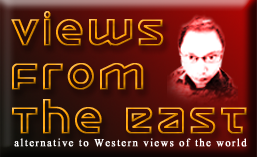In a move that surprised even keen observers Saudi Arabia, the United Arab Emirates, Egypt, Jordan and other Middle East countries have severed diplomatic ties with the State of Qatar this week.
The official reason for the public to consume was to protect from “various terrorist and sectarian groups aimed at destabilizing the region” as announced by Saudi Arabia on June 5.
Similar statements where heard from other Gulf Cooperation Council (GCC) capitals and was immediately followed by air, land, and sea travel bans to and from Qatar by the same countries.
Qatar for its part has defended its position, stating that the recent email leaks by its leader Sheikh Tamim bin Hamad Al Thani was a fabrication designed to implicate and isolate the country, and that it was not behind the leaked emails of Yousef al-Otaiba, the UAE ambassador to the United States.
Referring to the Saudi-led diplomatic embargo, leaders in Doha articulated that the unjustified action against them aims “to impose guardianship on the state” and that “this by itself is a violation of its [Qatar’s] sovereignty as a state.”
The days leading up to the GCC dispute
It can be recalled that during the end of May, US President Donald Trump visited Saudi Arabia, his first such visit outside America as president. The visit to Riyadh was perceived as quite a surprise choice, and is part of a nine-day, five country tour across the Middle East and Europe. The areas of discussion and agreements included the signing of a $110 billion arms deal between the two countries, the ongoing war in Syria, and the issue of Israel.
The visit was not well received in Qatar, as they opined that the it only resulted in emboldening Riyadh’s stance against Doha’s quasi-independent foreign policy, especially regarding long standing issues like the latter’s support for the Muslim Brotherhood in Egypt, and its cordial relationship with Iran, the arch nemesis of Saudi in the region.
Also during that week the Qatar government announced that its state-run news agency was hacked, where unidentified attackers published a fake story about alleged controversial comments made by the ruling emir. In response, Saudi Arabia and the UAE blocked Qatari media, including the influential Al-Jazeera news channel.
On June 5, unknown hackers have leaked the emails of Yousef al-Otaiba, where it was revealed that the UAE had strong links to think-thanks closely linked to Israel, as well as other points including the Emirate’s efforts to destabilize Turkey, its fight against Islamic movements including the Muslim Brotherhood, and Hamas, and its efforts to taint the reputation of Qatar and Kuwait.
The email leak also showed the Emirate’s ambition to replace Saudi Arabia as the United States’ “right hand” in the Middle East, and plans by Washington and the Emirates to halt a meeting between Hamas and the leadership of Qatar.
Bigger issues that have triggered this latest GCC row
It is important to note that a similar diplomatic spat occurred in 2014, when Saudi Arabia, the UAE, and Bahrain withdrew their ambassadors from Qatar as a result of Doha’s failure to implement a security pact of non-interference in their respective internal affairs. In response, leaders in Doha expressed their “disappointment and surprise” and that the real issue was about Qatar’s support of the deposed Egyptian leader Mohamed Morsi. At the height of the GCC dispute, former Qatar ambassador to the United Nations and the US expressed that “I am sure in the days after that wisdom will come and these countries will realize that trying to impose the philosophy of my way and the highway will not work with Qatar.”
Qatar has been criticized for its support for the Muslim Brotherhood especially in Egypt. This Islamic movement, which favors Sharia law to be implemented in the country, supports free and open elections, which does not sit well with most Arab monarchies, especially Saudi Arabia. The Saudis see elections as a threat to its legitimacy and internal security, and thus has lobbied to brand this Islamic movement as a terrorist organization.
In Washington, President Trump along with Secretary of State Rex Tillerson supports the Saudi’s judgement of the Muslim Brotherhood, although other bodies, such as the Human Rights Council, The Washington Post, and The New York Times, opposed such terrorist branding.
The Iranian connection
Prior to Donald Trump’s Arab-Islamic-American Summit in Riyadh, a leading Saudi newspaper published a story accusing Qatar Foreign Minister Sheikh Mohammad Bin Abdul Rahman Al Thani of meeting the Iranian Qud Force Commander Qasim Sulaimani, during the former’s visit to Iraq.
The visit was allegedly about helping arrange the release of members of the Qatari royal family, who were in Iraq as part of a falconry trip and then kidnapped in late 2015. The 26-man falconry party was released after the Qatari government paid a hefty $1 billion ransom for their release early this year.
This meeting was perceived by the House of Saud as compromising the merits of their anti-Iran agenda. The ransom paid to Iranian agents is said to be money that directly or indirectly supported extremists in the region. This accusation is despite Qatar’s signing the anti-Tehran Riyadh Declaration which condemned, among other allegations, that Iran had “hostile positions” and continues to interfere “in the domestic affairs of other countries.”
Doha has so far denied their deep involvement in Iran’s alleged hostile influence in the region. For instance, the Saudi-led war in Yemen is being supported by Qatar, which has about 1,000 troops combating the Iran-backed Houthi rebels. Despite this military support, Riyadh still accuses Doha of supporting the anti-government forces in Yemen.

